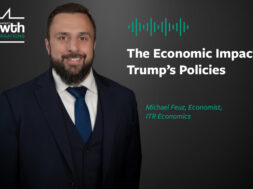SEC Proposal Widens Pool of Accredited Investors
A new rule could increase access to investment opportunities for financial services professionals who don’t meet current wealth-based criteria.

The private equity community welcomed a recent move by regulators to widen the pool of Americans eligible to invest in private companies.
While experts say the proposed change is unlikely to bring droves of Main Street investors to private equity funds, it could increase access to investment opportunities for financial services professionals who don’t meet the current wealth-based qualifying criteria.
After issuing an initial proposal in December, the Securities and Exchange Commission is expected to announce new rules later this year related to accredited investor status, which defines who is allowed to participate in private securities offerings and invest in private equity or hedge funds.
The move comes in response to critiques from industry leaders, advocacy groups and even the SEC itself that the current accredited investor definition is overly restrictive.
The definition of accredited investor, which has not been altered since Congress established it in 1982, requires that an investor have an annual income that exceeds $200,000 or a net worth over $1 million in order to invest in private markets.
Unless they meet these criteria, even employees with a high degree of financial expertise—including those who work in private equity or financial services—are barred from investing as individuals.
The high standards were intended to ensure that individuals who invest in private companies can withstand a loss, but policymakers have suggested other metrics, like education or expertise, also should be considered.
At a House Financial Services subcommittee hearing in September, Rep. Patrick McHenry, R-N.C., noted that under current rules, former Federal Reserve Chairman Ben Bernanke wouldn’t qualify as an accredited investor because he didn’t meet its wealth standard. “He was chairman of the largest bank on the planet,” McHenry said. “This is just one of the great limitations [of the standard].”
Broadening Investor Status
Stemming from calls to expand the accredited investor definition, the SEC drafted a concept release last June. During a public comment period, the proposal attracted support from asset manager BlackRock and industry associations like the Association for Corporate Growth and the Investment Company Institute. In December, the SEC formally proposed new rules.
The proposal added new qualifying categories based on professional knowledge, experience or certifications. For example, those with certain professional certifications and designations, such as a Series 7, 65 or 82 license, could qualify as accredited investors. According to the SEC, more than 691,000 people hold certifications and designations that qualify under the proposal.
The new rules also allow family offices with at least $5 million in assets to qualify for accredited investor status. This change allows a family office that otherwise meets the definition to preserve it even if a child or family member does not meet the income or wealth thresholds.
According to the SEC’s fact sheet, the proposed amendment will add limited liability companies that meet certain conditions, registered investment advisers and rural business investment companies to the list of entities that may qualify as accredited investors.
Clearing up Misconception
After the SEC released its proposal, a report in The Wall Street Journal suggested that “masses” of Main Street investors soon would be able to access private equity funds directly or through their 401(k)s.
Some industry-watchers and consumer groups feared newly eligible entrants to the market would be exposed to increased risk.
“If you turn salespeople loose on mom and pop, they will pitch [unregistered securities] hard to people who don’t know enough to make a good decision,” says Roger Hewins, president and founder of Team Hewins, a family wealth management firm based in Redwood City, California. “They will also be selling the worst and riskiest investments since the larger, smarter, experienced PE investors will get the good ones.”
Yet the influx of investors to private markets may not be as vast as industry-watchers envisioned. Millions of Americans already meet the wealth standards; even if hundreds of thousands more qualify as accredited investors under the new rule, “that’s a relatively small increase,” says Mark Wood, an attorney and head of the securities practice group at Katten Muchin Rosenman.
Those investors that qualify under the criteria may not have the financial resources that funds seek, now that wealth is no longer a prerequisite to investing. “Private equity firms are not looking for someone to put in $5,000,” Wood says. “It’s not practical.”
The change ultimately may not have much of an impact on private equity coffers or M&A, according to Ricardo Davidovich, a partner in the investment management and private equity practice group at law firm Haynes and Boone. “While there will be an increase in the number of accredited investors, based on the proposed rule, I do not think the increase will have a material impact,” he says.
The change still could have a positive effect on private equity in other ways—as a tool to motivate financial professionals, for example. “This makes it easier to incentivize employees by giving them opportunities to invest in the fund,” Wood says.
The proposal also could increase investor ranks meaningfully over the long term by freezing wealth requirements, rather than indexing them to inflation.
“Wage growth and increases in the value of assets will allow even more people to meet the thresholds over time,” Wood says. Since the accredited investor standard was established, the number of qualified investors has grown from 1.3 million to more than 16 million.
The new rule appeared in the Federal Register on Jan. 15. It will undergo a 60-day comment period before it can be approved by the SEC.
Are you an ACG member who enjoys reading the public policy roundup? Join our Public Policy Interest Group to receive even more in-depth coverage of federal policy activity impacting the middle market, as well as opportunities to help shape ACG’s advocacy efforts.

Benjamin Glick is Middle Market Growth’s associate editor.


